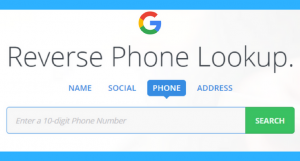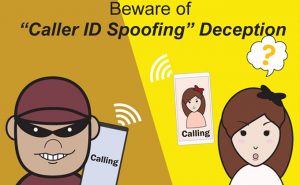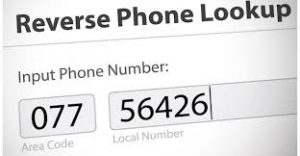Veterans are the target of a new benefits scam. Scammers call veterans to talk about their medical care and the Veterans Choice Program. The VCP is a part of the U.S. Department of Veterans Affairs (VA). The program allows eligible vets to access approved health care providers who operate outside the VA network.
Fraudsters try to trick veterans into answering important questions such as social security number, date of birth, and bank account information. In addition to health care scams, the callers approach veterans about updating their information, credit cards or financial services including home loans.
Spoofing
The scam involves using a phone number designed to fool people into believing the call is from the VA. Con artists may use lingo that is related to veteran benefits. They may sound like legitimate representatives. They set up phony 1-800 numbers to lure the veteran or family member into thinking that they have reached the VCP. It may contain a message stating that the veteran is eligible for a rebate or other services if the caller supplies a credit card number. The VA will never request financial information over the phone, nor will any other government agency. The real number for the Veterans Choice Program is 866-606-8198.
Callers may also leave a voice message to get you to return the call. A common message: “Your VA profile was flagged for two potential benefits to the changes in the VA program. These are time sensitive entitlements. Please call us back at your earliest convenience.”
If you call the number and it seems suspicious, hang up and verify the number. You can also use a phone app to do a reverse phone search to ensure the number is legitimate. If the call is not legitimate, report it to the VA’s identity theft prevention program, More Than a Number.
Email Scams
Scammers may also use email to get information. They often use official looking logos, seals or letterhead to resemble the real organization they claim to represent. The con artists will try to get you to send money or supply financial information. They will also “phish” for your information. If you receive such an email, you should take down the information, delete the email, and report it to the legitimate organization and to the Federal Trade Commission.
Ongoing Scams
Not all the scams listed are new. In fact, some have been going on for many years. Con artists keep them in rotation because they continue to be effective. Below is a list of common scams for veterans and their families.
Grandparent Scam
Although this is referred to as a “Grandparent Scam,” it can be used for any family member, civilian or military. The family member gets a call saying that a member of their family has been in an accident or is in jail and needs immediate assistance. The family member is instructed to send funds immediately through wire transfer or another untraceable method. Some may ask for a credit card or bank information. The family member is never in danger and the money disappears.
Rental Ruse
Con artists use this scam frequently to get money from potential tenants on properties they don’t own. Some go as far as trying to sell houses that belong to strangers. Scammers steal photos of properties off the Internet. They post ads on popular sites like Craigslist advertising the properties. When interested parties contact the “landlord,” they are told that the landlord is deployed military personnel or out of town on business. The would-be tenant must submit the rent and deposit upfront through wire transfer or another untraceable method. Upon receipt of the funds, the tenant will receive the keys.
Scammers may also offer military discounts to service members and their families upon return to the U.S. The landlord makes the same requests for payment through wire transfer or pre-paid gift cards.
Online Romance Scams
Fraudsters post fake profile pictures and information on dating sites to find true love with someone back home. The scam is so common that the U.S. Army receives hundreds of complaints each month regarding military members who have perpetrated a fraud. The real military personnel are unaware of the scam. The fake service member woos his target and eventually asks for money to cover an unexpected expense or SNAFU. Some claim they must find their way home from the deployment site.
Fake Job Listings
This scam targets younger veterans. Classified ads list potential jobs from government contractors. Veterans know employers may offer special consideration for military service. However, the scammer requires personal information before processing the vet’s application. Scammers steal the information and the vet never gets a job.
Military Loans
Scams offer loans to service members. The loans do not require a credit check and offer instant approval. Veterans receive the money but are required to pay upfront and hidden fees as well as crippling interest rates.
Benefits Buyout
Buyout programs are commonplace for people with annuities or cash settlements. Retired or disabled veterans in need of money may be convinced to take a cash payment in exchange for their pension benefits or future disability payments. The company issues payment but it’s only 30-40 percent of the value, leaving the veterans with a financial shortfall.
Life Insurance Scams
Hard sales tactics are used by agents who target veterans. They will use fake information in order to sign the veteran up for life insurance. The agent may convince the veteran that he works forthe Department of Veterans Affairs and to use his or her name as a beneficiary, which is illegal. Later, they will make false and inflated claims to cash in on policies. If the fraud is uncovered, the veteran is liable for the monies extended to the crooks. Be aware that the agent may claim to work for a legitimate organization such as AARP.
Conclusion
Thieves who steal personal information may use it for a wide variety of purposes. They may make withdrawals from bank accounts or open credit cards. At worst, they will sell the information on the black market or Dark Web, which means an untold number of people will have access to your information. You should always safeguard that information, but if that happens, there is little that can be done aside from shutting down accounts and opening new ones. Security companies, banks and credit card companies may offer identity theft protection, which is another way to protect yourself.










